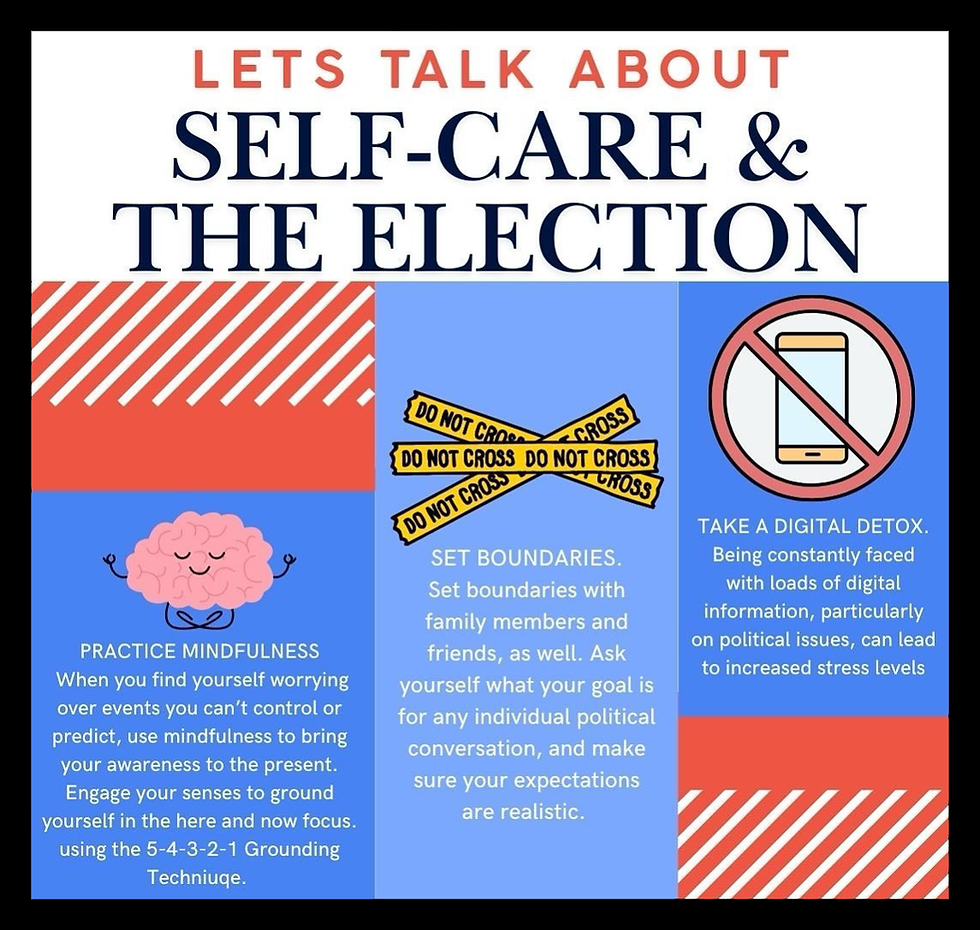All Levels at Once: A Therapist's Working Inner Monologue
- sharee allen
- Apr 22, 2024
- 2 min read
What appears in session to be a stoic façade is often masking a plethora of inner voices, engaged in active, continuous banter. As a therapist, I'm bringing many versions of myself into the room. My analytical trained professional, anxious inner child, compassionate safety net, and irreverent inner teen are a few of the common characters.
I'm also engaged in the internal dialogue informed by all of my previous sessions with you, the client. And you, too, containing multitudes, bring your own varied selves each day. This all adds up to create a high-stakes improvisation scene. If we're both honest about the fact that we're masking, performing, guessing and checking, that's where the real work can unfold.
Sometimes the inner banter gives way to a debate. Below is an example from UK Psychotherapist Joshua Fletcher, detailing some of his internal voices while awaiting the late arrival of a new client.
Critic What the hell are you doing? This is rude. Time is money.
Empathy This could be her first time in therapy. Perhaps she’s really scared? Give her a chance. You remember your own experiences of therapy, right?
Anxiety What if she was hit by a bus on the way here?
Irreverence Imagine if she was caught hitting the bus instead. “Die, bus, die!”
Analytical You’re on edge because you’re nervous.
Biology Your sympathetic nervous system is activated.
Compassion It’s OK not to feel calm right now. It’s OK to feel uneasy.
Detective The evidence suggests that she isn’t going to turn up.
Critic Wow, man, you love to overthink.
Volition I am going to concentrate on my breath and the sounds of outside.
Compassion Good idea.
In this case, the person who eventually turned up at his door was a major British celebrity, instantly recognizable from movies, theatre and television. What he explains in the article is an extreme example of countertransference, in which a therapist's own feelings become louder and may cloud the psychoanalytic work, if left unchecked. The act of naming countertransference is important for the therapeutic relationship. However, this can be difficult for the helping professions, as many of us are recovering people-pleasers, who struggle to admit when we don't have all the answers.
"People-pleasers can slip into a fawn response usually due to introjected beliefs growing up – perhaps to curry favor with an irrational authority figure who they wish to be approved of by," explains Fletcher. In the battle between the above critic and empath, the best referee is always our biology. Noticing our physical sensation is not something that clinicians simply preach: it is also a technique that we practice ourselves, often even in a tense part of the therapy hour.
The next time you're in a session and your therapist pauses to regroup before moving the conversation forward, try to remember that they, too, are humans, full of doubts and confidence. I encourage you to utilize this free moment, as Fletcher does, to check in with "your breath, and the sounds of outside."





Comments